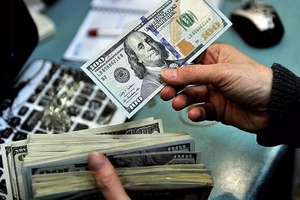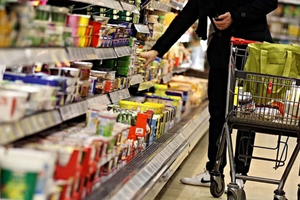Inflation hits new high, Iran’s Statistical Center says
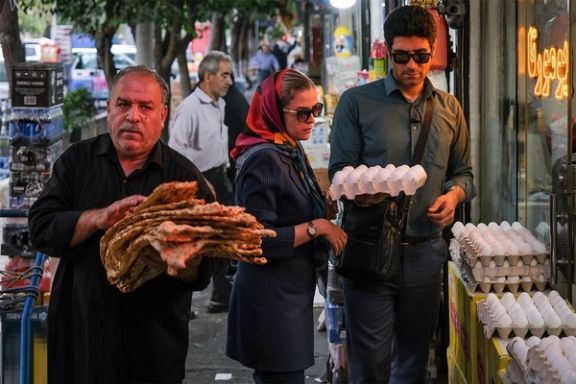
Iran's inflation has hit a new peak this year, with the Statistical Center of Iran reporting a general inflation rate of over 35% for February, the highest since last winter.

Iran's inflation has hit a new peak this year, with the Statistical Center of Iran reporting a general inflation rate of over 35% for February, the highest since last winter.
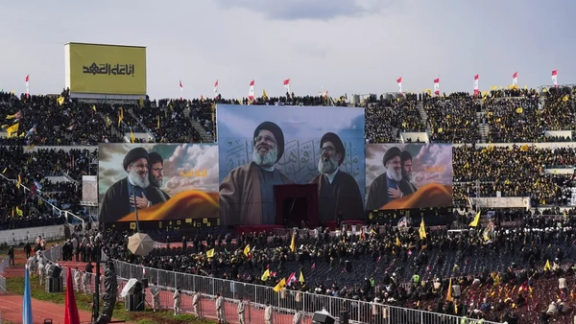
Iran’s foreign minister and parliament speaker traveled to Beirut to attend the funeral of Hassan Nasrallah, the slain Secretary General of Hezbollah, and his deputy.
Abbas Araghchi and Mohammad Bagher Ghalibaf, along with several Lebanese politicians and leaders of Iran-backed groups, will attend the ceremony.
Lebanese media said Iran’s President Masoud Pezeshkian expressed a desire to attend but did not receive an invitation.
Iranian state media said that family members of the late President Ebrahim Raisi and former Foreign Minister Hossein Amir-Abdollahian, who were killed in a helicopter crash last year along with several government officials, also traveled to Lebanon as part of an official delegation of around 40 representatives.
Araghchi said: “Many people in Iran wanted to participate today to bid farewell to these two heroes of the resistance. The funeral will show that Hezbollah remains strong, loyal to its ideals, and that the struggle will continue.”
Iran’s Supreme Leader Ali Khamenei issued a message for Nasrallah’s funeral, honoring him as a pioneering leader of the resistance whose legacy will endure. He also praised Safieddine as a vital figure in Lebanon’s resistance, offering prayers for them and all fallen fighters.
Khamenei added that “the resistance against usurpation and oppression will continue until its goals are achieved.”
Hezbollah, designated a terrorist organization by countries such as the US and UK, is currently in a fragile US-French brokered ceasefire with Israel, while both sides allege continued violations.
Last year, while thousands of projectiles being fired by Hezbollah to Israel in allegiance with Iran-backed Hamas in Gaza, hundreds of Hezbollah operatives were killed by Israel, including the assassination of its decades-long leader, Nasrallah.
He was killed in a targeted airstrike targeting Hezbollah’s command center in Beirut’s southern suburbs.
Hundreds more operatives were also seriously injured in a two-day operation in which Israel targeted pagers and walkie-talkies belonging to the group's members.
Ahead of Nasrallah’s burial, the Lebanese government extended the suspension of flights to and from Iran indefinitely.
The Washington Post reported that with the cancellation of Iranian passenger flights, Hezbollah supporters are traveling through Iraq to reach Beirut.
The funeral procession for Nasrallah and Safi al-Din is set to begin Sunday at a sports stadium in southern Beirut. Naim Qassem, Hezbollah’s current Secretary General, is expected to deliver a speech.
The US Embassy in Beirut has advised its citizens to avoid areas surrounding the funeral, including the airport.
Once Iran’s most powerful regional proxy armed militia, Hezbollah was founded with the support of the Revolutionary Guards in 1982 but suffered heavy losses in last year’s war, with Israel significantly weakening its military and political power.
While Tehran remains its key backer, the group’s diminished strength has raised questions about its ability to project power as it once did.
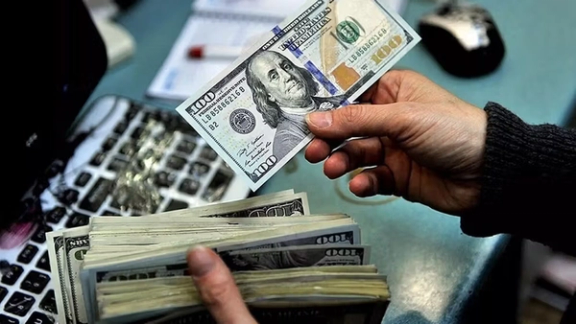
Iran’s national currency has plummeted further as the economic crisis continues, with the exchange rate hitting 950,000 rials per US dollar on Saturday, dropping 14% since last month and 86% year on year.
Speaking to state-run ISNA, economic expert Vahid Shaghaghi pointed to the influence of the US which has, under President Donald Trump's second term, renewed its 'maximum pressure' policy on Iran.
“The maximum pressure policy has resumed, and the US has gained additional experience from the previous campaign under Trump. The puzzle of sanctions is being completed, and in Trump’s new executive order, non-oil exports are also targeted,” he said.
Shaghaghi called for a coordinated response, urging the government and institutions to form a national and governmental consensus to counter the impact of such measures. “In an economic war, issues should not be perceived simplistically,” he added.
The rial’s steep decline has fueled inflation expectations, which have risen sharply since late December, when the dollar was still around 760,000 rials. Market concerns have intensified following Supreme Leader Ali Khamenei’s recent speech rejecting negotiations with the United States.
With the Iranian New Year (March 20) approaching, demand for imported goods—requiring foreign currency—is likely to push rates even higher. The price of gold has surged alongside the dollar, as Iranians seek refuge in hard assets.
For millions of Iranians, the continued currency collapse has eroded purchasing power.
Over the past five years, wages have failed to keep pace with surging costs, with the average worker’s monthly income now equivalent to just $125—far below the estimated $500 needed to cover basic living expenses, forcing at least one third of the nation below the poverty line.
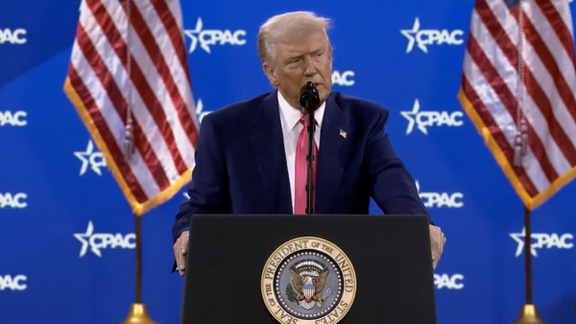
Donald Trump used his speech at the Conservative Political Action Conference (CPAC) to once again boast about the outcomes of pressuring Iran during his first time but stopped short of talking about his current plans for dealing with Tehran's rulers.
"Iran was broke. They had no money for Hamas or Hezbollah. They had no money to give. Everybody knows that...They were not giving money around," the US president said in his Saturday speech outside Washington DC.
He had previously made similar remarks about how his “maximum pressure” policy against the Islamic Republic helped reduce the country's oil sales and strip it of enough funds to sponsor its armed allies in the Middle East.
Trump has long argued that the deadly attack launched by Tehran-backed Hamas militants against Israel on October 7, 2023, would have never happened if he were in office.
"And when I got out, they took all the sanctions off, Biden, and Iran became rich very quickly. With oil, you can become rich very, very quickly. And the rest is history. What a horrible thing," Trump told the CPAC, criticizing his predecessor Joe Biden for what Republicans call a lax enforcement of US sanctions on Iran.
Data from oil tanker tracking firms reveal that during Joe Biden's presidency, Iran exported approximately 2 billion barrels of oil—a significant increase compared to the volumes recorded between 2019 and 2021.
Details from Kpler, a commodity intelligence company, reveal that Iran, whose daily oil exports had fallen below 400,000 barrels in January 2021, at the start of the Biden Administration, exported 1.6 million barrels daily last year.
Trump this month reinstated the maximum pressure campaign on Iran with the stated aim of driving its oil sales to zero, warning of "catastrophic" consequences if Tehran does not make a deal with the US on its nuclear program.
After restoring the sanctions policy, he said he would prefer a deal with Tehran to an Israeli attack on their nuclear sites.
Trump, however, refrained from addressing the issue in his speech at the CPAC.
The meeting was scheduled to host prominent exiled Iranian opposition figure Prince Reza Pahlavi but he cancelled his speech citing family commitments.
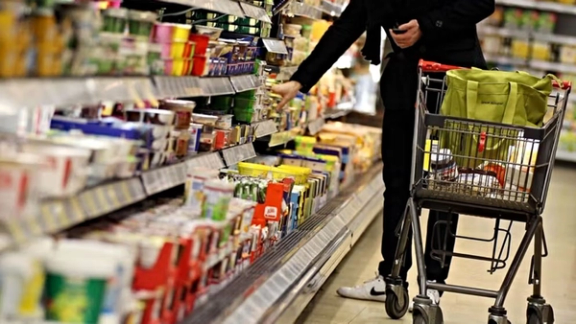
Citizens engaging with Iran International have sent videos reporting a sharp rise in the prices of essential goods and expressing deep dissatisfaction with the inefficiency and neglect by Islamic Republic officials.
In the reports, people highlight the increasing pressure on their livelihoods, complaining about the lack of response to their protests and the absence of effective measures to control prices.
One viewer, sharing a video, said that they had purchased only a few kilograms of potatoes, onions, and tomatoes, and the cost of these three items had reached 7,000,000 rials, approximately one-seventeenth of the average monthly Iranian salary.
The simultaneous surge in prices and worsening economic hardship, along with leaked reports of the Islamic Republic's financial aid to its supporters in Lebanon, has drawn significant attention from Iranian citizens.
One Iran International viewer, referring to the high food prices, said in a video: "The Iranian government gives money to the Lebanese, but does not care about its own people."
On Tuesday, Ali Khamenei, the Supreme Leader of the Islamic Republic, met in Tehran with leaders of Palestinian Islamic Jihad, who visited Tehran seeking financial assistance. Meanwhile, Hezbollah in Lebanon has been opening new branches of interest-free loan funds to distribute financial aid from the Islamic Republic.
Tehran has recently allocated more than $10,000 to each war-affected family in Lebanon to help cover rent and household expenses. This aid is distributed among Shiite Lebanese who are supporters of Hezbollah.
Naim Qassem, the newly appointed Secretary-General of Hezbollah, described the funds as a "gift from the Islamic Republic."
Inflation in Iran has reached an uncontrollable level, with the Iranian Statistics Center announcing that the country’s annual inflation rate for the 12 months leading up to February 2025 stands at 32%.
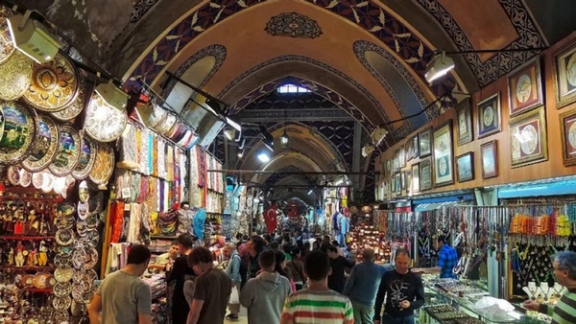
The Iranian currency, rial, has depreciated by more than 50% since September fueling annual inflation, which has hovered around 40% in the past five years.
Citizens hold the Islamic Republic and its policies responsible for their economic hardship and the rising cost of food and medicine.
Even Islamic Republic officials have acknowledged their inability to resolve the current crises.
President Masoud Pezeshkian referring to shortages in various sectors—including energy, which the government labels as imbalances—said:
"Do you think I have a magic box? No. Six months ago, I was walking in Parliament, and now I am the President."
Speaking at a meeting with officials in western Tehran on Thursday, Pezeshkian added:
"Everywhere we look, there is an imbalance—in water, electricity, gas, money, land, schools, and hospital beds. Demand is unlimited, and our capacity is limited."
Meanwhile, on Friday, Mohammad Jamalian, a member of Parliament’s Health Committee, said:
"Currently, 350 to 400 types of medicine are in short supply, and in the best-case scenario, such shortages will worsen within the next one to two months."
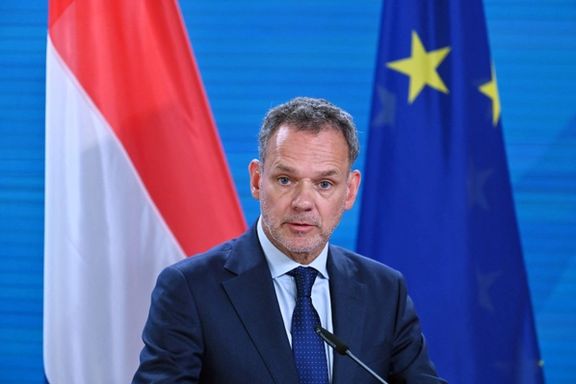
Iran confirmed that an Iranian national jailed in the Netherlands over alleged violation of Washington's sanctions against Tehran will return home after the Dutch authorities denied his US extradition.
Iran’s Deputy Foreign Minister Kazem Gharibabadi announced on X that Mahdi Kiasati, who was jailed in the Netherlands at the US's request over alleged sanctions violations, will be returning to Iran within hours following the Dutch decision to reject his extradition. No further details were given.
At the same time, Dutch Foreign Minister Caspar Veldkamp held a phone conversation with Iranian Foreign Minister Abbas Araghchi, covering Tehran’s nuclear program and the ongoing territorial dispute over Abu Musa, Greater Tunb, and Lesser Tunb islands between Iran and United Arab Emirates.
"Spoke with Iranian Foreign Minister Araghchi about developments in the Middle East. Also highlighted Iran’s nuclear program and the window of opportunity for a new nuclear deal," Veldkamp wrote on X.
He also said that the Netherlands supports a peaceful resolution of the islands dispute through bilateral engagement based on international law.
The status of the islands has been a longstanding source of tension between Iran and the UAE. The islands have been under Iranian control since 1971, when Tehran took possession following the withdrawal of British forces from the Persian Gulf.
Iran insists the islands have always been an integral part of its territory, while the UAE claims that they were historically under the jurisdiction of the Qasimi sheikhs and that their claim transferred to the UAE upon its formation in 1971.
The conversation also addressed Iran’s nuclear program, with Veldkamp stressing the “window of opportunity” for a new nuclear deal. The Netherlands, alongside other European nations, has supported efforts to revive negotiations after the Trump administration’s 2018 withdrawal from the Joint Comprehensive Plan of Action (JCPOA) and its “maximum pressure” campaign of sanctions against Iran.
Since the US exit, Iran has gradually scaled back its compliance with the JCPOA, enriching uranium beyond agreed limits and restricting international inspections.
The call between Veldkamp and Araghchi comes as European nations continue to emphasize diplomacy amid growing tensions over Iran’s nuclear program.
Earlier this month, a German Foreign Office spokesperson reaffirmed that Germany, France, and the UK had held preliminary talks with Iran on its nuclear activities and regional issues. While Washington escalates its "maximum pressure" campaign, European allies remain committed to diplomatic engagement—keeping communication channels open despite Tehran’s hardened stance against negotiations with the US.
The surge, marked by a monthly inflation exceeding 4% for the first time in the past year, has exacerbated the widespread public discontent, especially as food prices skyrocket. Hundreds of Iranian have sent messages to Iran International complaining about soaring prices.
Official data reveals that food costs are the primary driver of inflation, with rural areas experiencing a higher rate (36%) than urban centers (35.2%). Low-income households are bearing the brunt of this economic strain, particularly in provinces like Semnan, West Azarbaijan, and Hormozgan.
"The point-to-point inflation rate, indicating how much household expenses have changed compared to last year, reached 35.3% in the Persian calendar month of Bahman (ended on February 18)," said the Statistical Center. "This marks the highest inflation rate in 12 months."
Vegetables and legumes saw a staggering 16.9% monthly inflation, while fruits and nuts rose by 8.7%. Conversely, education saw the lowest monthly inflation, below 1%.
Annual inflation has risen by around 40 percent, each year in the past five years, and the rial has lost 95% of its value since 2018 when Donald Trump withdrew from the 2015 nuclear deal and re-imposed draconian sanctions on the country.
The massive depreciation of the rial and high inflation have drastically increased the cost of living, including expenses for food, housing, and healthcare and driven over 30 percent of the population below the poverty line.
Citizens engaging with Iran International have corroborated these findings, sending videos depicting a sharp rise in essential goods prices.
